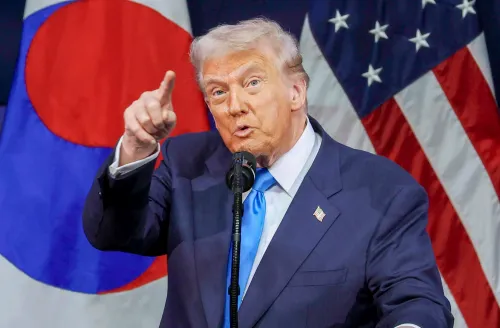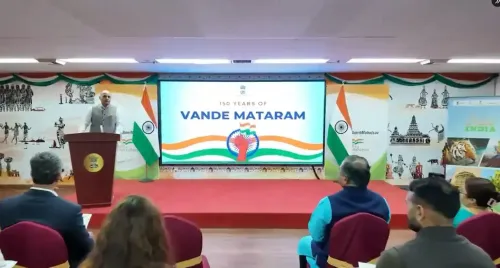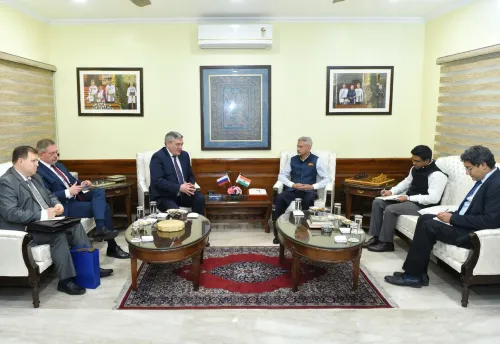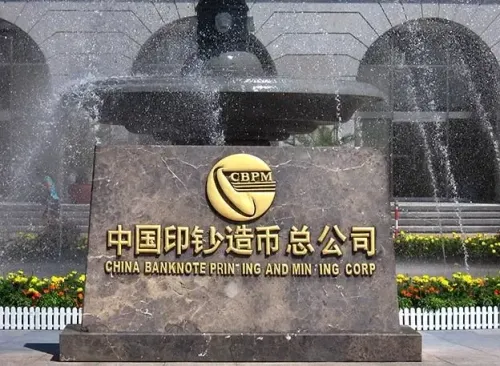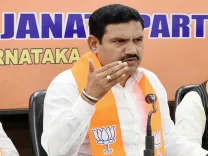India Bolsters Regional Relations Through PM Modi's 'Neighbourhood First' Initiatives
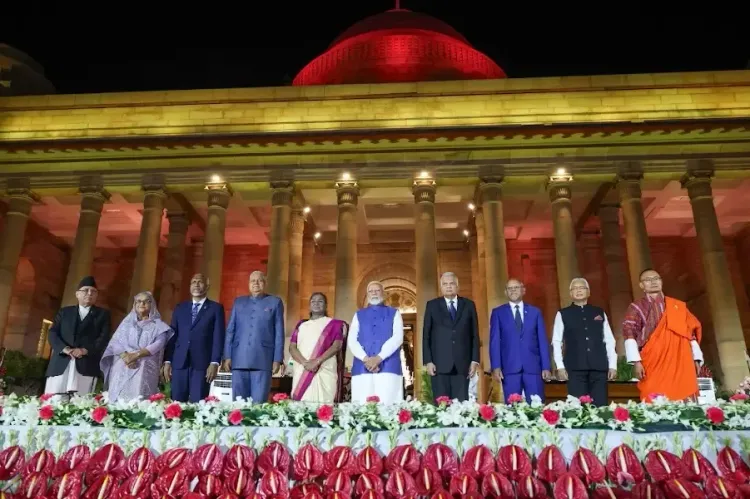
Synopsis
Key Takeaways
- India enhances regional ties through development projects.
- PM Modi's leadership emphasizes 'Neighbourhood First' policy.
- Significant projects in Sri Lanka, Nepal, and Bangladesh.
- Focus on infrastructure, energy, and healthcare initiatives.
- Commitment to fostering stability and prosperity in South Asia.
New Delhi, April 6 (NationPress) Under the guidance of Prime Minister Narendra Modi, India has established itself as a reliable development ally to its neighboring countries, adhering to the principles of the 'Neighbourhood First' policy and enhancing its pledge towards inclusive and sustainable regional advancement.
In the past decade, New Delhi has launched numerous substantial developmental initiatives across its neighboring nations—namely Sri Lanka, Nepal, Bangladesh, Bhutan, Afghanistan, Myanmar, and the Maldives. These initiatives emphasize improvements in physical, digital, energy, and people-to-people connectivity.
Under PM Modi's administration, there has been an exceptional enhancement of relations with neighboring nations through mutually advantageous programs aimed at promoting stability and prosperity within South Asia.
His recent trip to Sri Lanka highlighted this dedication, as he, alongside Sri Lankan President Anura Kumara Dissanayake, jointly inaugurated India-sponsored development projects, including the upgraded Maho-Omanthai railway track and a newly built signalling system for the Maho-Anuradhapura railway segment. These projects mark a significant milestone in the expanding bilateral infrastructure partnership.
India's development collaboration with Sri Lanka is founded on shared political understanding, geographical closeness, cultural connections, and socio-cultural integration.
During his visit, PM Modi and President Dissanayake conducted bilateral talks that resulted in the signing of several important agreements, including a defence cooperation pact and another aimed at developing Trincomalee as a regional energy hub.
Additional significant MoUs included the implementation of the HVDC interconnection for cross-border electricity trade, collaboration on digital solutions for large-scale digital transformation, multi-sectoral grant support for the Eastern Province, and partnerships in health, medicine, and pharmacopoeia.
PM Modi also declared a comprehensive capacity-building initiative for 700 Sri Lankans annually. He further promised grant assistance for the development of the Thirukoneswaram temple in Trincomalee, the Sita Eliya temple in Nuwara Eliya, and the Sacred City Complex in Anuradhapura.
Moreover, India will support the Exposition of Lord Buddha's relics in Sri Lanka during the International Vesak Day in 2025. The conclusion of bilateral amendments regarding debt restructuring was also finalized.
India's assistance further extends to new essential infrastructure projects in Sri Lanka. These initiatives include the Sampur Solar Power Project, a temperature-controlled agricultural warehouse in Dambulla, and the provision of solar rooftop systems for 5,000 religious establishments throughout the nation.
India's role as a dependable partner transcends Sri Lanka. With Nepal, New Delhi has maintained a warm relationship, with PM Modi visiting the Himalayan country five times since 2014.
In terms of connectivity, the cross-border railway link between Jaynagar (India) and Kurtha (Nepal) was inaugurated in April 2022. The Motihari-Amlekhgunj Petroleum Pipeline, inaugurated in 2019, stands as South Asia's inaugural cross-border petroleum pipeline, offering substantial economic advantages to Nepal.
A Memorandum of Understanding signed in June 2023 has facilitated the development of new petroleum infrastructures, including the Siliguri-Jhapa pipeline and two greenfield terminals at Chitwan and Jhapa.
The India-supported Jayanagar-Kurtha-Bardibas rail link, inaugurated in April 2022, has further enhanced regional connectivity. The Jogbani-Biratnagar Rail Link also became operational for freight in June 2023, while the Final Location Survey Report of the Raxaul-Kathmandu railway link is currently being finalized.
In a bid to bolster trade, India has developed integrated checkposts at Nepalgunj, Biratnagar, and Birgunj. In June 2023, both Prime Ministers jointly inaugurated the Nepalgunj ICP and laid the foundation for the Bhairahawa ICP.
Following the devastating earthquake in 2015, India committed $1 billion to Nepal's reconstruction, including $250 million in grants and $750 million as a Line of Credit.
Power infrastructure has also witnessed robust collaboration. The Solu Corridor 132kV Transmission Line (April 2022) linked remote areas to the national grid, while the 42-km Modi-Lekhnath Transmission Line (August 2023) improved electricity supply.
In the healthcare sector, India has contributed by providing 200 dialysis machines and 50 Reverse Osmosis systems, significantly upgrading Nepal's medical infrastructure.
With Bangladesh, India's developmental presence has significantly increased. The Akhaura-Agartala Rail Link Project, valued at Rs 270.2 crore and inaugurated in 2023, has strengthened cross-border connectivity.
The Maitree Super Thermal Power Project, one of Bangladesh's largest power plants, was jointly inaugurated in November 2023, enhancing the nation’s energy generation capacity. The Khulna-Mongla Rail Line Project, also launched in November 2023, has improved cargo transit and connectivity.
To ensure energy security, PM Modi and his Bangladeshi counterpart inaugurated the India-Bangladesh Friendship Pipeline (Rs 285.24 crore) in 2023. New Delhi has also extended emergency healthcare support, providing 109 Basic Life Support ambulances to Bangladesh.
In Afghanistan, India has remained actively involved. The Afghan-India Friendship Dam (Salma Dam), inaugurated in 2016, continues to provide essential irrigation and energy.
India also financed the construction of the Afghan Parliament Building, inaugurated by PM Modi in 2015. During challenging times, India supplied 2.45 lakh metric tonnes of wheat to the war-affected nation, enhancing food security.
India's strategic connectivity initiatives in Myanmar include the Kaladan Multi-Modal Transit Transport Project (Rs 982.99 crore), aimed at boosting trade and regional connections.
Additionally, India has invested in education and agriculture by supporting the Myanmar Institute of Information Technology (MIIT) in Yangon and the Advanced Centre of Agriculture Research and Education (ACARE) in Nay Pyi Taw.
India was also among the first responders during the recent earthquake in Myanmar, dispatching over 50 tonnes of Humanitarian Assistance and Disaster Relief (HADR) under Operation Brahma, which continues to aid affected communities.
The India-Bhutan partnership has also thrived under PM Modi's leadership. The Gyaltsuen Jetsun Pema Wangchuck Mother and Child Hospital, inaugurated in 2024 with Indian support of Rs 141 crore, now provides essential maternal and child healthcare services.
The Mangdechhu Hydroelectric Project (Rs 5,033.56 crore), opened in 2019, remains a pivotal component of Bhutan's renewable energy evolution.
In the Maldives, India has significantly influenced infrastructure, environment, and defense. The Water and Sanitation Project (Rs 107.34 crore), inaugurated in August 2024, has enhanced facilities across 34 islands, benefiting 28,000 citizens.
The Addu City Development Project (Rs 160.24 crore), also launched in August 2024, focused on land reclamation, shore protection, and establishing the nation's longest man-made beach.
This project also involved the world's second-largest coral relocation effort, balancing environmental conservation with developmental needs. The Composite Training Centre (Rs 52.42 crore) has improved security and training infrastructure, while India's defense assistance—including Dornier aircraft and Dhruv helicopters—has strengthened the Maldives' emergency response capabilities.
Since 2014, guided by the principles of 'Neighbourhood First' and 'Vasudhaiva Kutumbakam', India has persistently worked to reinforce its status as a vital catalyst for regional growth and stability.
The extensive array of projects across various sectors not only solidifies India's role as a dependable development partner but also embodies its vision of a connected and prosperous South Asia.
These initiatives stand as a testament to India's dedication to fostering goodwill, stability, and collective progression throughout the neighborhood, promising a more radiant and interconnected future for the entire region.

